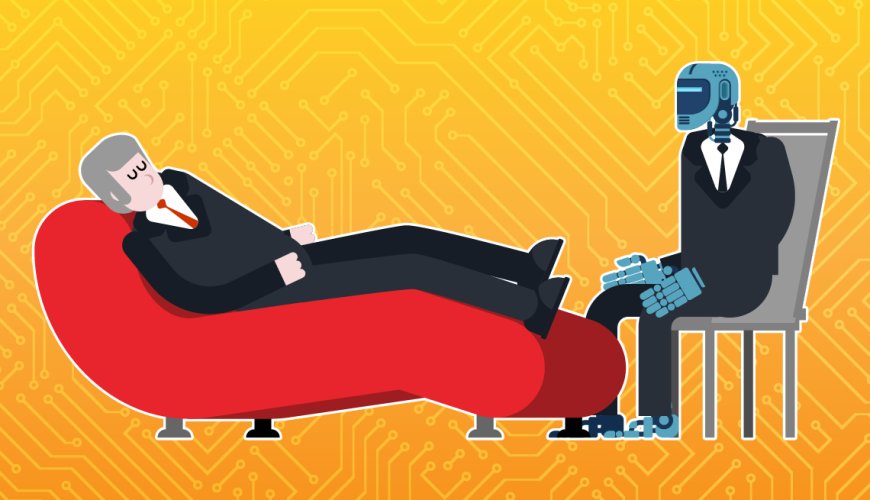AI in Therapy
In recent years, the integration of Artificial Intelligence (AI) into various sectors has sparked revolutionary advancements, particularly in healthcare. One notable area of application is in therapy, where AI technologies are transforming traditional approaches to mental health treatment. By leveraging machine learning algorithms, natural language processing (NLP), and other AI techniques, therapists can now offer more personalized, accessible, and effective interventions to individuals experiencing psychological distress. This essay explores the implications of AI in therapy, discussing its benefits, challenges, and ethical considerations.

Therapy has historically relied on face-to-face interactions between clients and therapists. While traditional therapy remains valuable, it is often limited by factors such as accessibility, affordability, and therapist availability. AI offers solutions to these challenges by providing innovative tools and platforms that extend the reach of mental health services.
One of the earliest manifestations of AI in therapy was in the form of chatbots designed to simulate conversations with human therapists. These chatbots, powered by NLP algorithms, can engage in dialogue with users, offer support, and provide psychoeducation. For example, Woebot, developed by psychologists and AI researchers, delivers cognitive-behavioral therapy (CBT) techniques through a conversational interface. Studies have shown that individuals interacting with Woebot experience reductions in symptoms of depression and anxiety, highlighting the potential of AI-driven interventions.
Moreover, AI enables the analysis of vast amounts of data to identify patterns and insights relevant to mental health. Through data mining techniques, AI algorithms can detect correlations between various factors and mental health outcomes, facilitating early intervention and personalized treatment approaches. For instance, predictive analytics models can predict the risk of suicide attempts based on social media posts and other online activities, enabling targeted interventions.
Silva (2023) states that Based on ten studies, a 2022 review of the effectiveness of AI in therapy concluded that using AI could greatly improve psychotherapy and lessen clinical mental health symptoms. In most studies, AI therapy was well received in terms of engagement, satisfaction, and retention rates. While more research is required, it's likely that AI could have a positive impact on expanding access to mental health care, according to a 2023 article examining AI as a psychotherapy tool. According to research from 2019 and 2020 cited in the review, AI could aid in diagnosis by analyzing behavioral patterns and providing comprehensive data access. Additionally, chatbots could imitate practitioner questions and then provide recommendations based on user input. The benefits of AI in therapy are:
Accessibility: AI-driven therapy platforms can be accessed remotely through smartphones or computers, overcoming geographical barriers, and reducing stigma associated with seeking mental health support.
Personalization: AI algorithms can tailor interventions to individual needs and preferences by analyzing user data and adjusting treatment protocols accordingly. This personalized approach enhances engagement and effectiveness.
Scalability: AI-powered therapy platforms can accommodate a large number of users simultaneously, making mental health services more scalable and cost-effective.
Early Intervention: By analyzing behavioral patterns and digital footprints, AI can detect early signs of mental health issues and provide timely interventions, potentially preventing crises or worsening symptoms.
Continuity of Care: AI-driven therapy platforms can offer continuous support and monitoring, bridging the gap between in-person therapy sessions and empowering individuals to manage their mental health autonomously.
According to Sutton (2024), even though there are considerable benefits to embracing AI in therapy, there are still challenges and problems to using tools such as ChatGPT for therapy and AI tools for therapists. The challenges are mentioned below:
- Lack of empathy
- Complexity of human psychology
- Loss of patient autonomy
- Unknown long-term effects
- Ethical privacy concerns
- Loss of personal touch
AI holds tremendous promise for revolutionizing mental health care by making therapy more accessible, personalized, and effective. From chatbots delivering CBT interventions to predictive analytics models identifying early signs of mental health issues, AI-driven platforms offer innovative solutions to longstanding challenges in therapy. However, responsible implementation requires addressing ethical considerations such as privacy, bias, and human oversight. By leveraging the strengths of AI while preserving the human touch in therapy, we can harness technology's transformative potential to improve mental health outcomes for individuals worldwide.
References
Silva, L. (2023, December 6). 4 AI therapy Options reviewed: Do they work? Forbes Health. https://www.forbes.com/health/mind/ai-therapy/
Sutton, J., PhD. (2024, March 4). Revolutionizing AI therapy: The Impact on Mental Health care. PositivePsychology.com. https://positivepsychology.com/ai-therapy/#hero-single
What's Your Reaction?


















































































